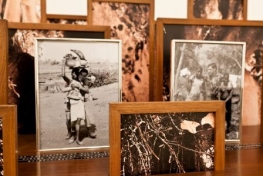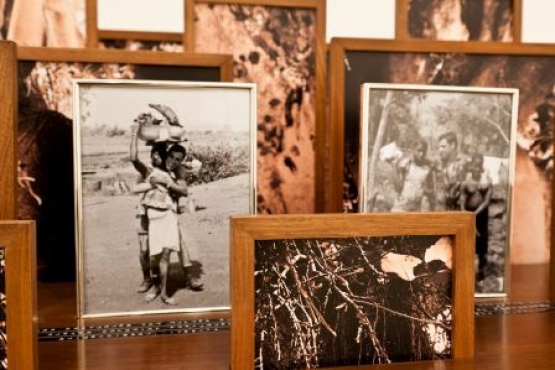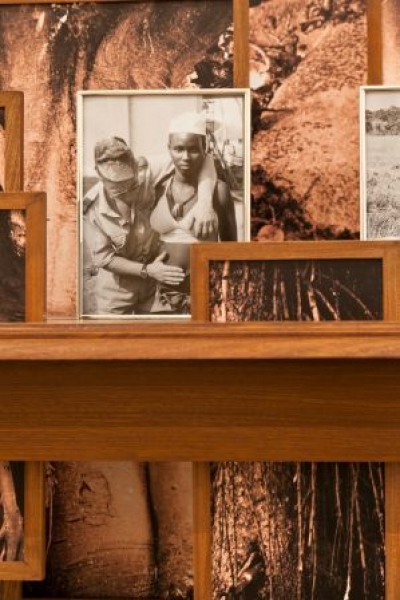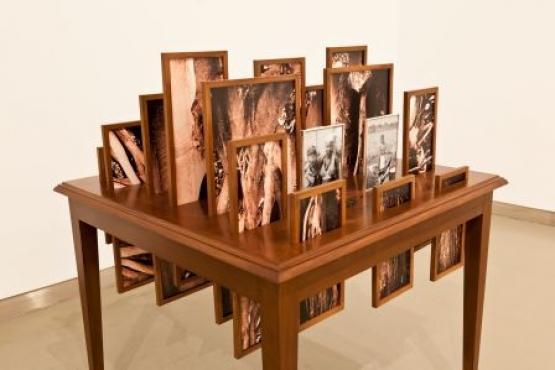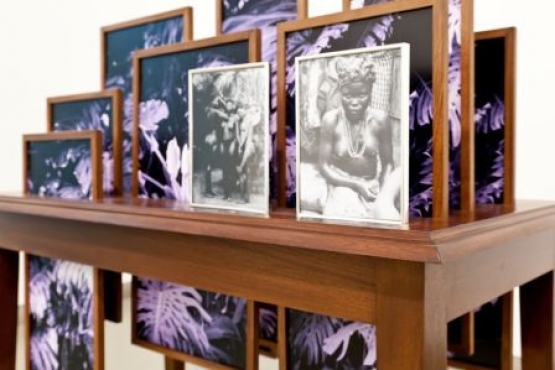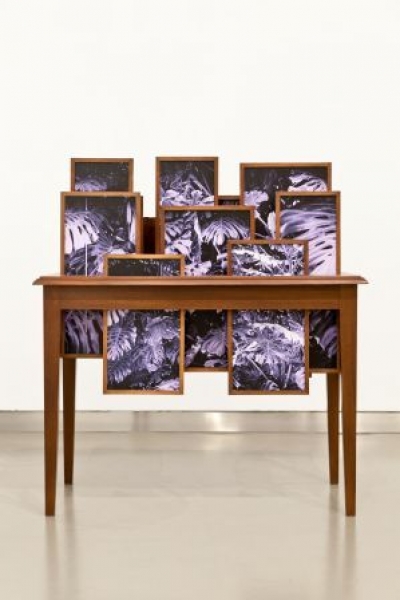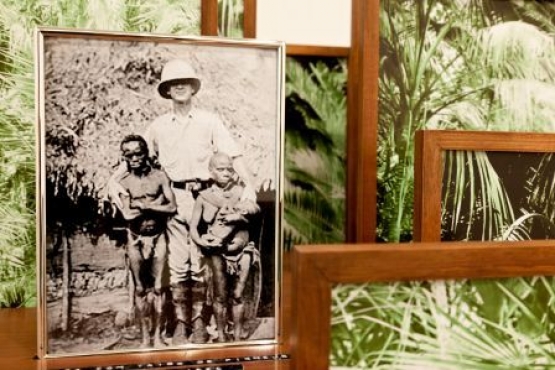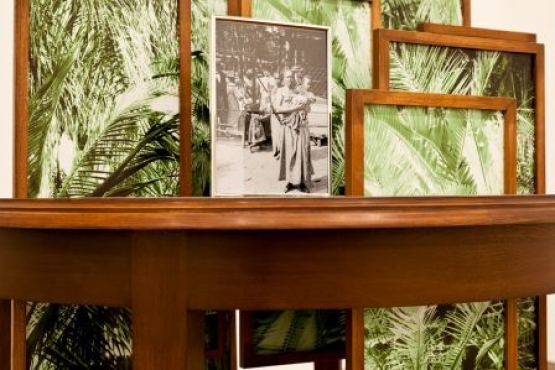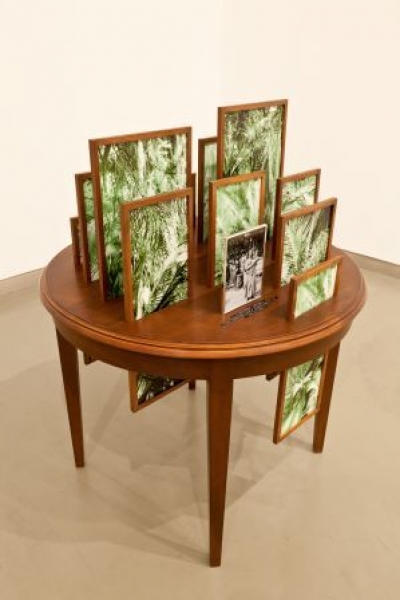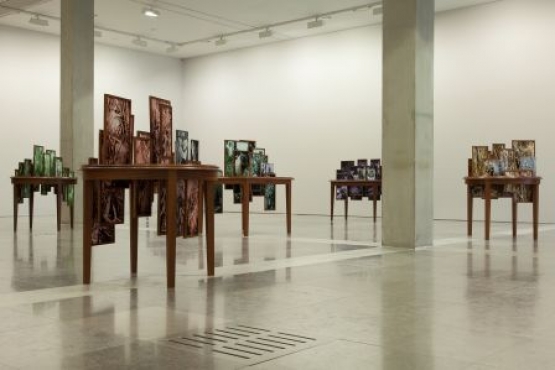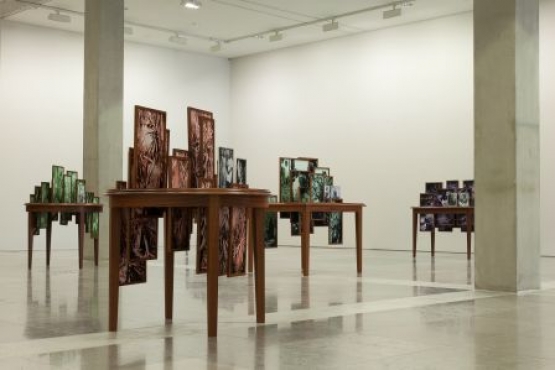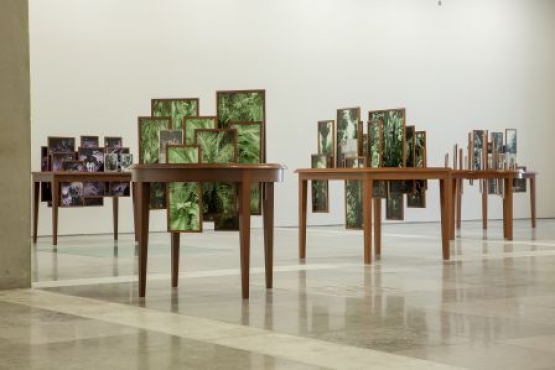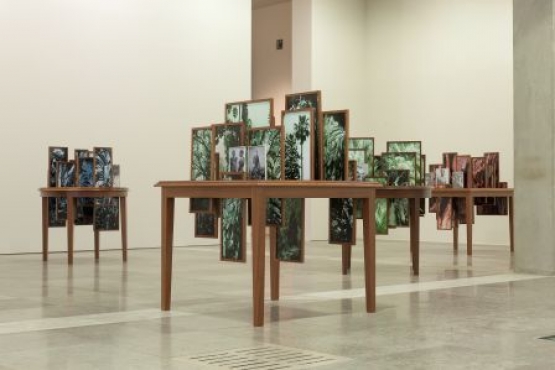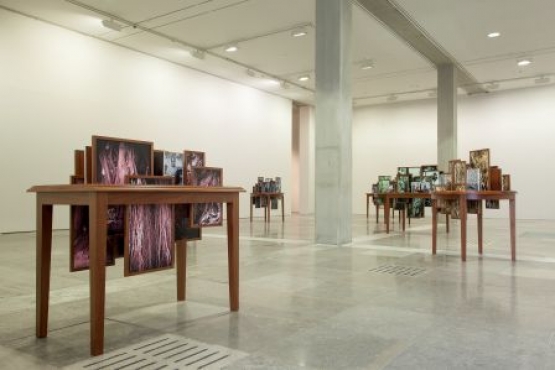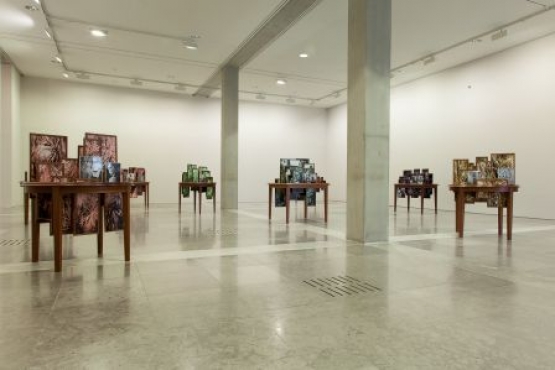Frantz Fanon
The artist tackles the subject of the representation of the exotic in 19th and 20th century colonial culture in 12 sculptural objects. A dictatorship that held on to a colonial empire until 1975 – one of the last ones in the European context to be dismantled – and a hasty and traumatic decolonisation, account to a great extent for the late emergence of a post-colonial reasoning.
Vasco Araújo is one of the artists who has reflected most on the ‘exotic’, thinking critically about the ways in which it has entered and stayed on in the national imagination. In this series, the artist introduces several issues which are at the root of the establishment of the ‘exotic’ and its utilisation as the source of stereotypes and cultural disaggregation in colonised societies. He selected archival images that draw a map of the many facets of the colonising process, a process in which, regardless of place or culture, what prevailed was violence against the Other, who was reduced to the ‘primitive’ through a distorted evolutionary interpretation of the species.
Botânica is an uncomfortable series, one which challenges our habitual apathy with respect to a compromising past. The artist confronts us with images that, even today, are polemical: many were kept from the gaze of the generations that came after the empire and the colonial war, as a way of liberating consciences from responsibility and introducing the opaque semantics of Luso-tropicalism and Lusophonism.
We also chose to present, in context with this exhibition, several works of Portuguese artists that reflect the aesthetic vision of the ‘exotic’ in different epochs and the formalism of its representations, in which the western imaginary of the ‘Other’ has always been based on a notion of evolutionary superiority, of repulsion and fascination.
Botânica also forms part of a discourse of resistance to artistic complacency and ignorance of the past. Above all, it confirms the possibility of thinking critically about Portugal’s colonial history, about immigration, about problematic neighbourhoods, about integration policies, about superficial multiculturalism, or about a commoditised Lusophonism dominated by strategic interests.
Emília Tavares

